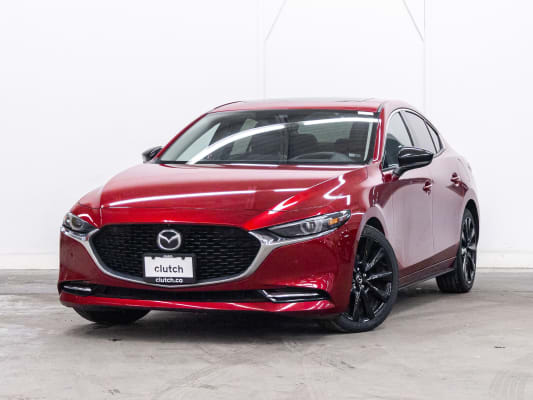If someone in Canada is turned down for a car loan or offered high interest rates, there’s still a path forward—bringing in a co-signer. A co-signer can help strengthen the loan application, improving the chances of approval and possibly securing better terms.
That said, co-signing isn’t always straightforward. It comes with serious responsibilities and potential risks. In this guide, we’ll break down how co-signing works, what it means for both parties, and the key pros and cons to consider.
What Is a Co-Signer?
A co-signer is someone who agrees to share legal responsibility for a car loan alongside the primary borrower. Typically, this person has a stronger credit score or a more stable financial background, which helps reassure lenders that the loan will be repaid.
While anyone with good credit can technically co-sign, it’s usually a close family member, partner, or trusted friend. By co-signing, they’re not just helping the borrower qualify, they’re also agreeing to repay the full loan if the borrower can’t.
Why Would Someone Need a Co-Signer for a Vehicle?
There are a few common reasons why someone might need a co-signer to get approved for a car loan or to secure better terms.
Bad Credit
Lenders assess loan applications based on credit history, and if a borrower has a low credit score or past issues like missed payments, it can lead to high interest rates, steep down payment requirements, or even a loan denial.
In these cases, having a co-signer with stronger credit can make a big difference. It reassures the lender, increasing the chances of approval and often unlocking lower interest rates or more manageable terms.
No Credit History
For first-time borrowers or those who haven’t used credit in a long time, their credit report may be too thin or completely empty. Unfortunately, lenders often view no credit the same way they view bad credit: as a risk. This can lead to a loan denial or a sky-high interest rate.
Having a co-signer with a solid credit history can improve the odds of approval and help unlock better loan terms. For instance, a student looking for a car loan might get declined on their own, but qualify once a parent or relative with good credit co-signs.
Limited or Irregular Income
Even with decent credit, a borrower’s financial situation might raise red flags. A high debt-to-income (DTI) ratio could suggest they’re already stretched too thin. Or, they may earn enough overall but have variable income, like someone working in hospitality or sales, where pay is commission-based.
In these cases, a co-signer with stable income and lower debt can help strengthen the application, making approval more likely and terms more favourable.

What’s the Difference Between a Co-Signer and a Co-Buyer?
While both co-signers and co-buyers take on equal responsibility for repaying an auto loan, the key difference lies in ownership.
A co-signer agrees to guarantee the loan but does not have any legal ownership of the vehicle. Their name won’t appear on the title or registration—they’re backing the loan, not buying the car.
A co-buyer, on the other hand, shares both the financial and ownership responsibilities. Their name is included on the loan, the title, and the registration, giving them legal rights to the vehicle.
What Are the Benefits of Being a Co-Signer?
There are a few potential upsides to co-signing a car loan:
Helping a Loved One
The most common reason people co-sign is to support a friend or family member, especially someone with no credit or poor credit, so they can access a vehicle and financing they otherwise couldn’t.
Contributing to Their Credit Journey
By co-signing, you’re helping someone build or rebuild their credit. As they make consistent, on-time payments, their credit score will likely improve over time.
Potential Credit Boost for You
The loan will appear on your credit report, too. If the borrower stays on track, those positive payments may also help strengthen your own credit profile.
What Are the Risks of Co-Signing?
While co-signing a car loan can help someone close to you, it also comes with serious financial risks—some immediate, and others that may surface over time.
1. Immediate Credit Score Effects
As soon as you co-sign, the loan appears on your credit report, even though you’re not the one making the payments. This can impact several areas of your credit:
- Amounts owed (30% of your score): The new auto loan increases your overall debt load, which can lower your score.
- Length of credit history (15%): Adding a new account may reduce the average age of your credit accounts, slightly impacting your score.
- New credit (10%): The loan triggers a hard inquiry and counts as a new credit line, both of which can lower your score.
2. Harder to Qualify for Your Own Loans
Because co-signing increases your debt-to-income ratio (DTI), lenders may see you as a higher-risk borrower. This could make it harder to qualify for new credit, like a mortgage, personal loan, or even a credit card, especially for large purchases.
3. Risk of Major Credit Damage
If the primary borrower misses payments or defaults on the loan, you’re on the hook, not just financially, but in your credit history. Late payments, repossession, and collections will show up on your credit report and can do significant long-term damage.
4. Legal and Financial Liability
Should the borrower default and the lender pursue legal action, you could be held responsible. In the worst case, a judgment could lead to wage garnishment or a frozen bank account.

Financing With Clutch May Not Require a Co-Signer
At Clutch, we make it easier to finance your next car. There may be no co-signer required in many cases. As Canada’s largest online used car retailer, we offer a fully digital car buying experience, from browsing to delivery.
Even if your credit isn’t perfect, our finance team works with multiple lenders to help you get approved. Just fill out our online credit application. It only takes two minutes and won’t affect your credit score. If needed, you can always add a co-signer to improve your chances or secure better rates.
Every Clutch vehicle comes with peace of mind built in: a 210-point inspection, a 3-month warranty, and a 10-day money-back guarantee. If the car’s not right, return it or exchange it—no hassle.
Check out our vast inventory of pre-owned cars in Canada and find your dream car today. And if you’d like to see how different financing options could fit your budget, try our car loan calculator before you buy.
FAQs About Co-Signing a Car Loan
Does co-signing affect your credit?
Yes. The loan appears on both the borrower’s and co-signer’s credit reports. That means any missed or late payments can impact both credit scores.
Can anyone be a co-signer on a car loan in Canada?
Yes, as long as they meet the lender’s credit and income requirements. Most lenders prefer co-signers with strong credit and a stable financial profile.
What’s the difference between a co-signer and a co-buyer?
A co-signer doesn’t have ownership of the vehicle but shares legal responsibility for the loan. A co-buyer shares both the loan and ownership of the vehicle.
Can a co-signer remove themselves from the loan later?
Usually not without refinancing. Once the loan is signed, both parties are legally responsible unless the loan is refinanced in the primary borrower’s name alone.
Does co-signing help the borrower build credit?
Yes. If the borrower makes on-time payments, it can help them build a positive credit history—which can improve their score over time.





.avif)
_Thumbnail.avif)

.avif)



































































































